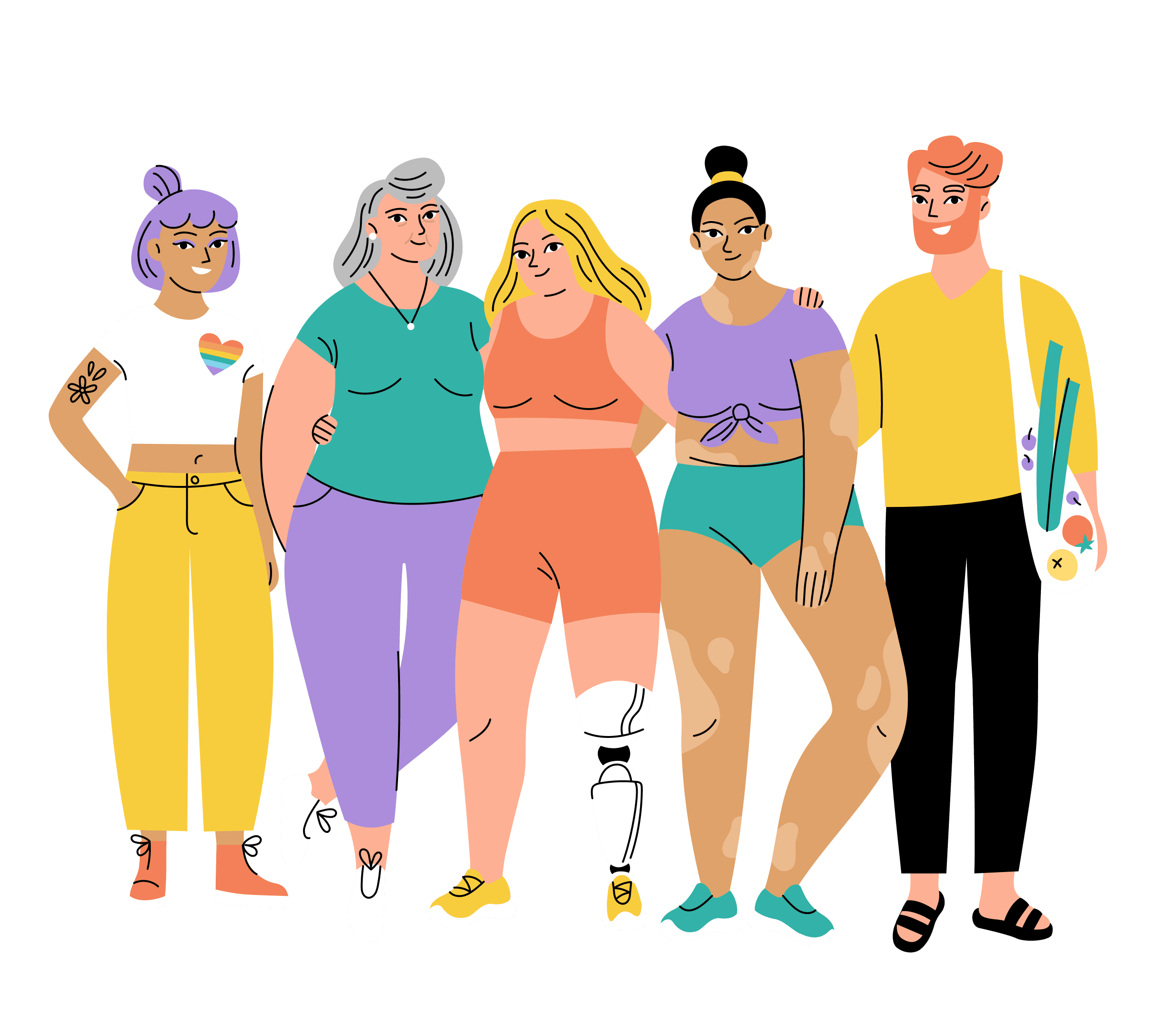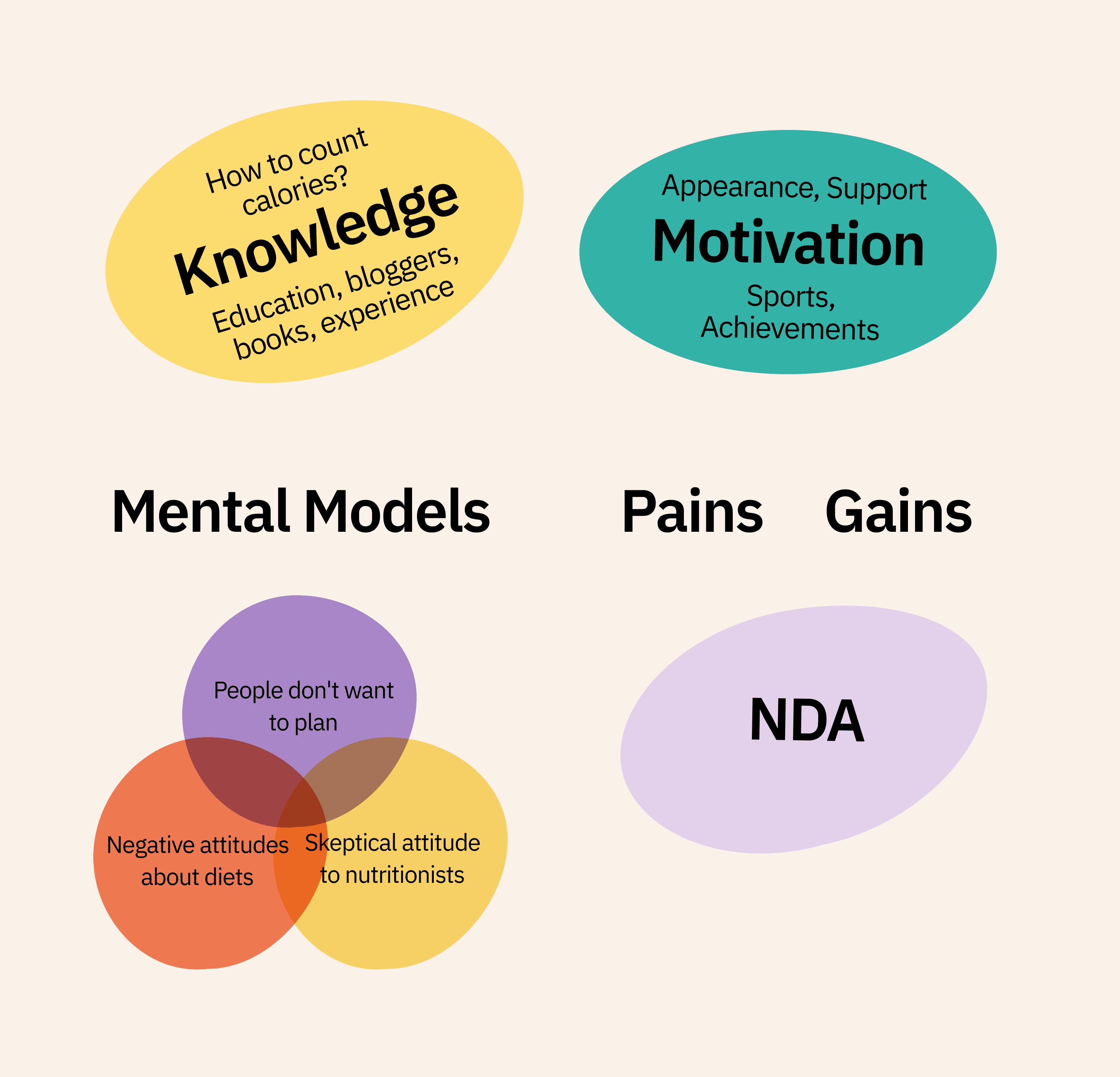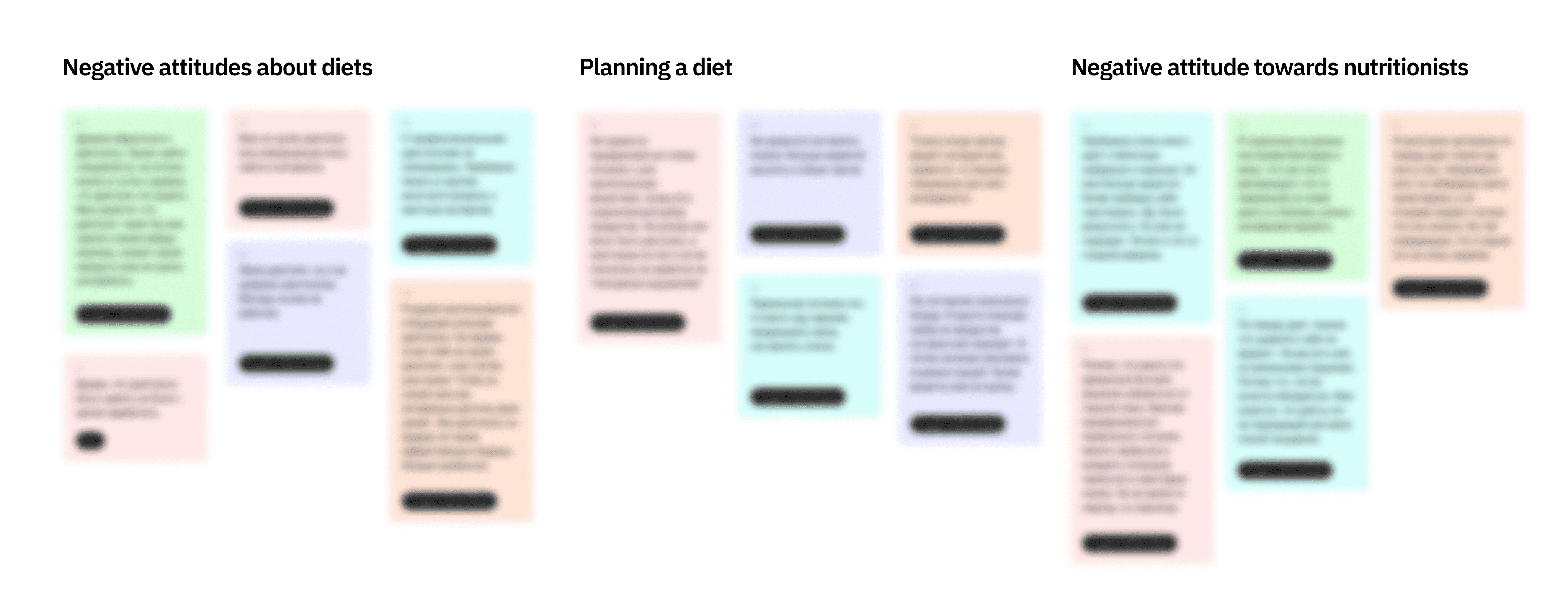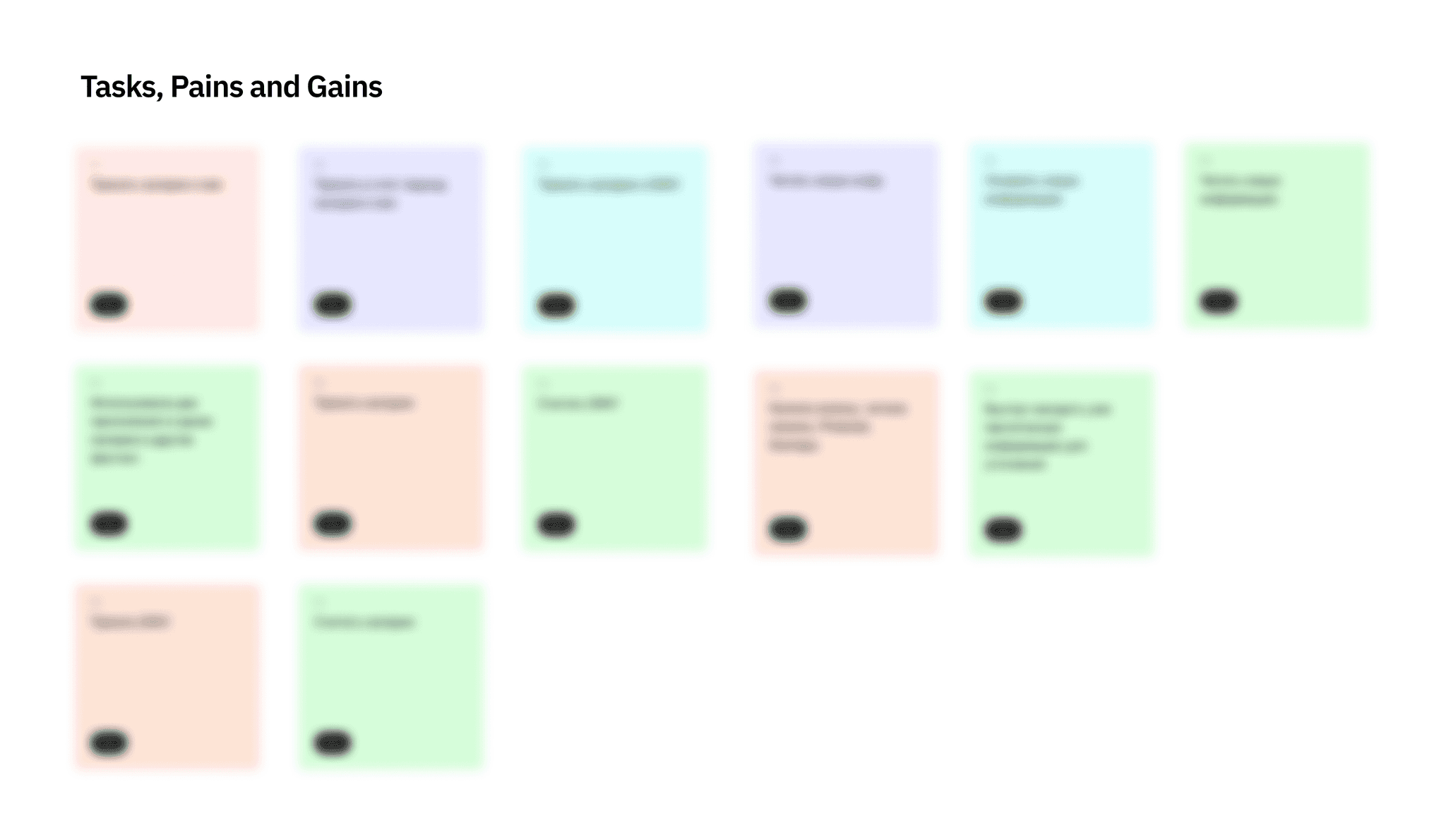Research Objective: Find out the user’s mental models.
Research Type: In-depth interviews.
In-depth interviews
Screening
Before starting the study, we created a screening survey. The questionnaire helped us to find respondents with sufficient experience in losing weight and achieving results.
We also selected people who had experience using weight loss apps or diets. The next step in the screening process was a phone call, which allowed us to determine whether a particular respondent was the right fit for us.
We prepared an interview script and questions.
All questions were among the main topics:
Context — The context of use (when, why, and how);
Knowledge — Domain knowledge: what does the user need to know to do the job?
Tasks — Current tasks and activities
Objectives & motivation — Goals and motivation for using the product;
Mental model — mental model: what users think about their work and activities, what they expect from the product;
Pains — Problems and reasons for dissatisfaction with the current product (or similar);
Gains — Something that solves problems;
We conducted five interview sessions with respondents.
Findings
After analyzing and clustering the responses, we identified the most prominent and promising topics.
Knowledge
Unfortunately, I can't show the complete image due to confidentiality reasons and my commitment to the signed NDA 🤷♂️
During the research we realized that the whole process of losing weight is a learning process. Users learn to eat right and listen to themselves and their bodies.
We clustered the responses and identified the following areas:
Channels of information consumption;
What did respondents learn or want to learn while losing weight;
What conclusions respondents drew after learning the information.
Motivation
Unfortunately, I can't show the complete image due to confidentiality reasons and my commitment to the signed NDA 🤷♂️
In motivation, we identified the following clusters:
Appearance;
Health and athletic performance;
Support and motivation;
Family and community.
Mental Models
Unfortunately, I can't show the complete image due to confidentiality reasons and my commitment to the signed NDA 🤷♂️
We've identified the following themes:
Negative attitudes about diets; Dieting is associated with something hard and unhealthy, made up by marketers and bloggers. Respondents feel depressed by restrictions.
Diet planning. People don't want to plan anything. They want to know exactly what foods they shouldn't eat and aren't willing to follow any strict plans. Users like individual recipes that interest them.
Negative attitude towards nutritionists. Most respondents do not plan to interact with nutritionists in any way. They do not trust them and believe they can manage on their own. For example, to find information on the Internet.
Tasks, Pains and Gains
We also identified the main tasks and pains of users.
Unfortunately, I can't show the complete image due to confidentiality reasons and my commitment to the signed NDA 🤷♂️
Conclusion
I cannot provide the full text of the conclusions with details. But here is the general.
Thanks to the research, we learned the mental models of overweight people and identified new potential vectors for product development.
We also formulated questions for further research:
How can an app motivate and educate as effectively as a nutritionist, personal trainer, or coach?
Outcome
This study became the basis for building a new product strategy and further focused research.





